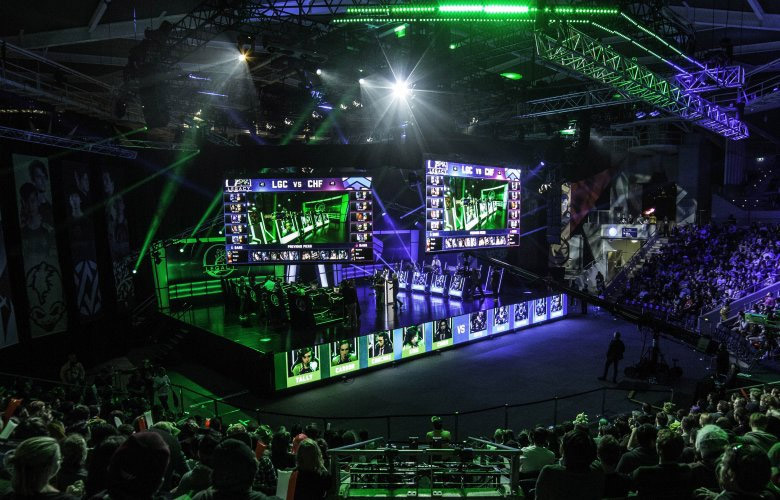The Saturday Paper story: ‘The Other Worlds Game: League of Legends and eSports’, October 2016
A feature story for The Saturday Paper, published in the October 29 2016 issue. Excerpt below.
With hundreds of millions of players, online gaming now has professional ‘eSport’ competitions watched by huge global crowds.
Ten young men sit on a stage behind computer monitors deftly manoeuvring mouses and frantically stabbing at keyboards. These two teams of five are the best in Australia at a game called League of Legends, and it is their full-time job to stare at screens while attempting to outsmart their opposition. On a pedestal between them sits the winner’s prize: the Oceanic Pro League (OPL) cup, a gleaming silver trophy lit at all times by an overhead spotlight. Facing the stage is a raucous crowd of 2000 fans who have each paid $26 to sit on a hard plastic seat at the South Bank Piazza, in Brisbane’s inner city, and cheer on their favourite team.
Hundreds have dressed in custom-made costumes based on their favourite game characters. Two commentators provide a running dialogue of the action, which is displayed on three enormous screens above the players and their machines. Wearing headphones to block external sound, the players communicate with each other via headsets. A battery of green and blue LED lights flashes overhead, while at the front edge of the stage live webcams capture the gamers’ facial expressions above their gaming nicknames: among them Swip3rR, Tally, k1ng and Raes.
There are also tens of thousands of fans watching the OPL grand final at home on Fox Sports, at several cinemas around the country, and streaming the footage online around the world. Welcome to eSports, short for “electronic sports”. Such competitions have been enormously popular overseas for years, particularly in South Korea, where strategy games such as StarCraft and Defense of the Ancients – or DoTA in the online world’s abbreviated fashion – are watched and played by millions. The OPL 2016 grand final is Brisbane’s best-attended live eSports event to date, and one of the biggest yet held in Australia.
League of Legends is the world’s most popular online game – the most recent figures this year show that 100 million players log on to its servers each month. LoL is a multiplayer online battle game, where each player controls a “champion” with its own strengths, weaknesses and special moves.
Leading the Legacy eSports club is Tim “Carbon” Wendel, a 24-year-old health sciences graduate whose boyish features offset a lanky athlete’s body. “It’s kind of a mix between basketball and chess,” he explains. “It’s five-a-side, every person has an individual role, in the same way you’ll only have one centre or point guard, and you’re always moving. It’s obviously a lot less physical, and very strategic like chess, but the difference there is that it’s in real time.”
Beside him sits Aaron “ChuChuZ” Bland, Legacy’s second-longest-serving member, a 19-year-old in a black hoodie and dark-rimmed glasses. The five members of this minor-premiership-winning team live in a share house in Sydney’s western suburbs with their coach, An “Minkywhale” Trinh. They spend about six hours a day training together by playing friendly matches with other teams. There are also regular video reviews of their performances, and individual practice is expected on top of that. Heading into events such as this, the players will spend up to 12 hours a day in front of a screen.
To read the full story, visit The Saturday Paper. Above photo credit: Dylan Esguerra.
